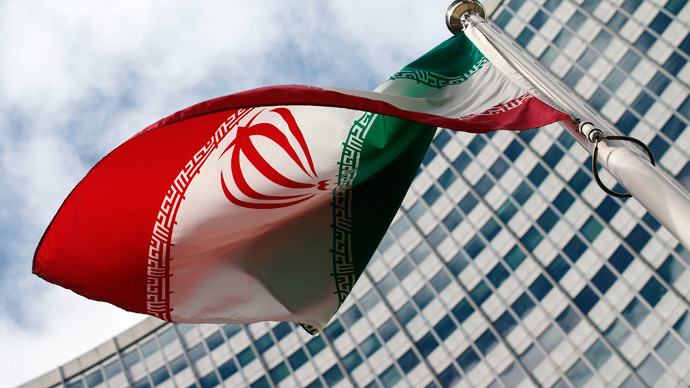Nuke talks: ‘US unrealistic expecting Iran to give up’

Tehran won’t make any concessions to the US in nuclear talks until the Americans agree to Iranian terms, particularly regarding the multilateral sanctions, not only oil and banking, says Gareth Porter, journalist and American foreign policy expert.
Another round of Iran nuclear talks have concluded. The US Secretary of State John Kerry described the results as “positive” while the Iran’s Supreme Leader, Ayatollah Ali Khamenei, accused the US of pressuring his country economically and religiously.
RT:US Congress members are seeking to cut off taxpayer money for the talks leaving US officials with no government funds for travelling, staying in hotels or any activity connected with the talks. Will it have any impact on the negotiations with Tehran do you think?
Gareth Porter: No, not really. That is not a way that Congress is going to have a serious impact on the talks. They do in fact have leverage with regard to US policy in these talks. But they have that leverage because they can still pass legislation that would undermine in effect or nullify the possibility of an agreement by essentially making it impossible for the US to lift sanctions against Iran. That is a very powerful tool and I can tell you that it does in fact have a constraining effect on the Obama administration. I have been told by someone who has been briefed on the Obama administration’s strategy that the great fear of the Obama White House is that the US will be blamed for the collapse of these talks because of a congressional move to legislate, as I have suggested, in a way that would undermine the talks. That is the major reason why the Obama administration has held out with regard to lifting the sanctions …as Iran has demanded up till now.

RT:There's also the letter from US Republicans, saying they consider any deal to be a personal one between President Obama and Ayatollah Khamenei, and that the next president could easily revoke it. Is that a real threat; is that a plausible tactic that they are using there?
GP: Not really, because as the Iranians pointed it out in their response to the Republican letter what the negotiators have already agreed to do on both sides is to negotiate an arrangement under which the UN Security Council would bless this agreement and turn it into a Security Council resolution so that all of the undertakings on both sides would become international law. Therefore a future president would be bound by the commitments that have been made because they would become a part of international law… The US has been arguing that the UN resolutions are international law and that Iran is violating those resolutions, and therefore violating international law by continuing to enrich uranium because UN resolution has forbidden it.
RT:Iran's Supreme Leader has also come criticizing America's positioning in the talks. Khamenei said that “the US is in dire need of negotiations” and that Iranian nation doesn’t oppose settlement of the nuclear issue but rejects “giving into the US bullying and imposition of will.” What do you think has provoked that frustration?
GP: I think that is the reaction to continued use of terminology by the US, by Secretary Kerry, as well as President Obama that indicates to the Iranians that they must make a fundamental political decision in order to have an agreement. This is terminology; this is phraseology that has been used for many months by the Obama administration. It’s a way of putting pressure or trying to put pressure on the Iranians to make much more fundamental concessions to the US position, P5+1 position [UK, US, Russia, China, France, plus Germany] than the Iranians have been willing to make and which I believe the Iranians will not make until the US has agreed to the Iranian terms. The US has been unrealistic in expecting the Iranians to give up, particularity their demand for lifting of all the sanctions and not just the multilateral sanctions relating to oil and banking.
The statements, views and opinions expressed in this column are solely those of the author and do not necessarily represent those of RT.
The statements, views and opinions expressed in this column are solely those of the author and do not necessarily represent those of RT.












